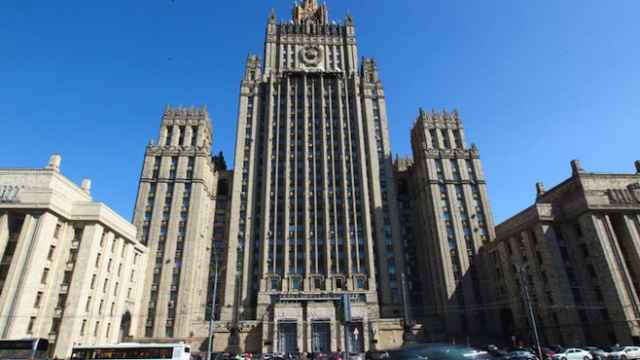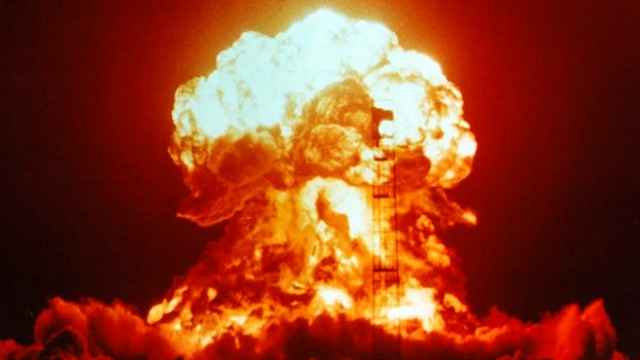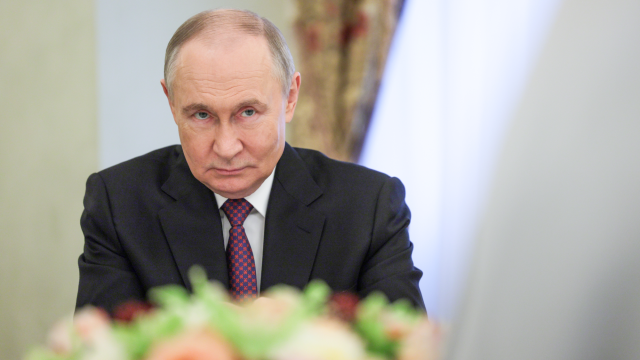The United States will switch on its controversial European missile defense system on May 12 despite heightened tensions between Russia and the West. The project was sold by Washington a decade ago as a shield for NATO allies in Europe from Iranian missiles, but perceived in Moscow as a direct threat to the credibility of Russia's nuclear deterrence.
“We now have the capability to protect NATO in Europe,” U.S. Deputy Secretary of Defense Robert Work was quoted by Reuters as saying on May 11. “The Iranians are increasing their capabilities and we have to be ahead of that.” Work added that the system, installed at a Romanian air base, is not directed toward Russia.
His assurances are sure to fall on deaf ears in Moscow, where the issue of missile defense has been one of the most toxic third-rails in U.S.-Russia bilateral relations since the end of the Cold War. In recent years, Washington has sought to assuage Russian fears that the missile shield is directed at Moscow’s missiles, and that it is not even capable of intercepting them. The Kremlin has continued to oppose the plans.
The prospect of an U.S. missile defense system on Russia's doorstep is a bleak one for Moscow's military thinkers. Despite intense investments in military modernization under President Vladimir Putin, Russia's conventional armed forces remain relatively weak. Nuclear missiles remain the Kremlin's only reliable means of ensuring a national defense on any front.
The Romanian missile-defense site will form the heart of a larger network of U.S. ships armed with radars and missile interceptors. These ships regularly patrol the Mediterranean Sea and occasionally enter the Baltic or Black Sea closer to Russia.
NATO Secretary General Jens Stoltenberg will join Work in Romania on May 12 to inaugurate the missile shield. Shortly after going online, control over the U.S.-build missile shield will be handed over to NATO command. On May 13, construction of a second missile defense installation will begin. The site, located in Poland, is expected to go online in 2018.
A Message from The Moscow Times:
Dear readers,
We are facing unprecedented challenges. Russia's Prosecutor General's Office has designated The Moscow Times as an "undesirable" organization, criminalizing our work and putting our staff at risk of prosecution. This follows our earlier unjust labeling as a "foreign agent."
These actions are direct attempts to silence independent journalism in Russia. The authorities claim our work "discredits the decisions of the Russian leadership." We see things differently: we strive to provide accurate, unbiased reporting on Russia.
We, the journalists of The Moscow Times, refuse to be silenced. But to continue our work, we need your help.
Your support, no matter how small, makes a world of difference. If you can, please support us monthly starting from just $2. It's quick to set up, and every contribution makes a significant impact.
By supporting The Moscow Times, you're defending open, independent journalism in the face of repression. Thank you for standing with us.
Remind me later.





